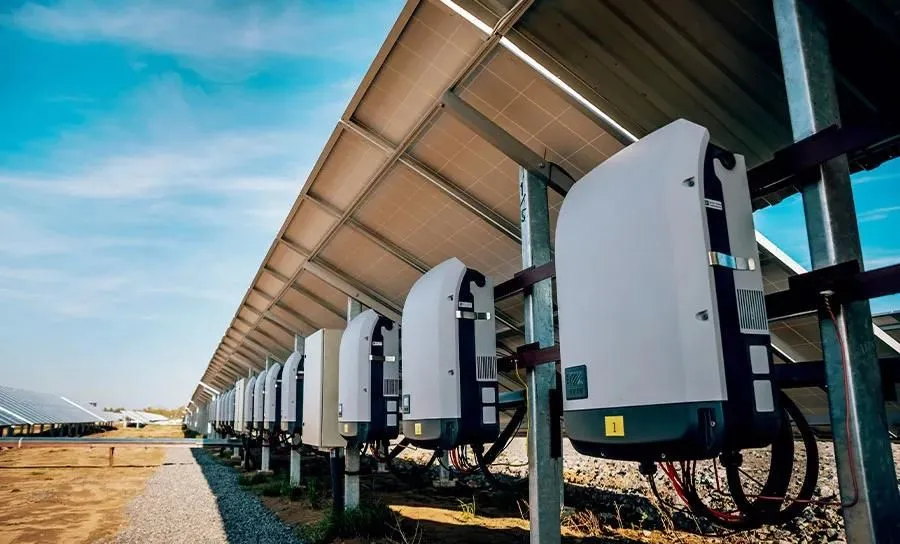In recent years, more and more people have been turning to renewable energy solutions, and solar battery storage has become a crucial part of this shift. Homeowners are increasingly eager to harness the sun’s power to cut down on their electricity bills and reduce their carbon footprint. In this article, we’ll dive into how solar batteries work, discuss their value, and cover everything else you need to know about solar battery storage.
What is a Solar Battery?
A solar battery is a rechargeable battery designed to store energy generated from solar panels. By capturing excess energy produced during sunny days, these batteries allow homeowners to use that energy later, such as at night or during periods when solar production is low. This capability not only maximizes the use of renewable energy but also enhances energy independence.
How Do Solar Batteries Work?
It’s essential to understand how do solar batteries work if you’re considering this technology. Here’s a simple breakdown of the process:
- Energy Generation: During the day, solar panels convert sunlight into direct current (DC) electricity.
- Energy Conversion: An inverter changes the DC electricity into alternating current (AC) electricity, which is what most home appliances use.
- Energy Usage: The AC electricity powers your home’s appliances. If you produce more electricity than you need, the excess energy goes to the solar battery.
- Energy Storage: The solar battery storage system captures and stores this excess energy for later use.
- Energy Release: When the sun goes down or when your energy consumption exceeds solar production, the solar battery discharges stored energy back into your home, providing power when you need it most.
This process allows homeowners to maximize their solar energy use, reducing their reliance on the grid and saving money on their electricity bills.
Types of Solar Batteries
When exploring solar battery storage, there are several types of batteries to consider:
- Lithium-ion Batteries: These are the most common type of solar batteries because they offer high energy density, longer lifespan, and good efficiency. They are lightweight and require less maintenance than other options.
- Lead-acid Batteries: Traditionally used for solar storage, these batteries are generally cheaper but have a shorter lifespan and lower efficiency. They are heavier and require regular maintenance.
- Saltwater Batteries: This is a newer technology that is eco-friendly and non-toxic. While saltwater batteries have lower energy density than lithium-ion batteries, they present a promising sustainable option.
Are Solar Batteries Worth It?
A common question among those considering solar energy is, “Are solar batteries worth it?” The answer depends on several factors:
1. Energy Costs
If you live in an area with high electricity rates, investing in solar batteries can lead to significant savings over time. By storing excess energy generated during the day, you can use this energy during peak hours when electricity costs are highest.
2. Grid Independence
Many homeowners value the independence that comes with solar and battery systems. By storing energy, you can reduce your reliance on the grid and avoid potential price hikes or outages.
3. Environmental Impact
If reducing your carbon footprint is important to you, solar battery storage allows you to utilize renewable energy more effectively. By maximizing your solar energy use, you can significantly lower your reliance on fossil fuels.
4. Incentives and Rebates
In many areas, government incentives or rebates for solar battery installation can help offset the initial investment. Research local programs to see what options are available to make your purchase more affordable.
5. Long-Term Investment
While the upfront cost of installing a solar battery system can be significant, the long-term savings on energy bills and the increase in your home’s value can make it a smart investment.
How Long Do Solar Batteries Last?
When thinking about solar battery storage, understanding battery lifespan is essential. Most lithium-ion batteries last between 10 to 15 years, while lead-acid batteries typically last about 5 to 7 years. Several factors can influence how long your batteries last:
- Depth of Discharge (DoD): The deeper a battery is discharged before recharging, the shorter its lifespan may be. Following the manufacturer’s guidelines on DoD is crucial for maintaining optimal longevity.
- Temperature: Extreme temperatures can impact battery performance. Keeping batteries in a controlled environment can help extend their lifespan.
- Maintenance: Regular maintenance, particularly for lead-acid batteries, can also affect longevity. Scheduling periodic checks can ensure your system operates efficiently.
Choosing the Right Solar Battery for Your Needs
Finding the right solar battery for your home requires considering several factors:
1. Capacity
Capacity refers to how much energy a battery can store, usually measured in kilowatt-hours (kWh). Assess your energy needs and select a battery with enough capacity to meet those demands.
2. Power Rating
The power rating indicates how much power a battery can deliver at any moment, measured in kilowatts (kW). Make sure the power rating matches your household’s peak energy usage.
3. Cycle Life
Cycle life refers to the number of complete charge-discharge cycles a battery can undergo before its capacity significantly diminishes. A longer cycle life means better longevity and value.
4. Warranty
Most reputable manufacturers offer warranties covering performance over a specified period. Look for batteries with strong warranties, as they indicate the manufacturer’s confidence in their product.
Installation Considerations
When planning to invest in solar battery storage, proper installation is crucial. Here are some things to keep in mind:
1. Professional Installation
Hiring a qualified solar installer is vital for ensuring that your solar batteries and solar panels are installed correctly, maximizing efficiency and safety.
2. System Integration
Your solar and battery systems should work together seamlessly for optimal performance. Discuss compatibility with your installer to ensure that your existing solar panel system can support battery storage.
3. Space Requirements
Solar batteries can take up considerable space, so plan for their installation accordingly. Ensure you have a designated area that is dry, cool, and easily accessible.
Maintenance of Solar Batteries
Proper maintenance of your solar battery system is essential for ensuring longevity and performance. Here are some maintenance tips:
- Regular Checks: Schedule periodic checks to monitor battery health, connections, and overall performance. Being proactive can help you catch any issues early.
- Cleaning: Keep the battery and its surroundings clean from dust and debris to avoid overheating and ensure efficient operation.
- Software Updates: Many modern solar batteries feature smart technology that requires software updates. Stay informed about updates to enhance performance.
Conclusion
Solar battery storage presents an excellent opportunity for homeowners looking to make the most of their solar energy. By understanding how do solar batteries work, evaluating their worth, and considering key factors for installation and maintenance, you can make an informed decision about investing in this technology.
As the demand for renewable energy continues to rise, integrating solar batteries into your home not only boosts your energy independence but also contributes to a more sustainable future. By harnessing the sun’s power and storing it effectively, you can enjoy the benefits of clean energy while potentially lowering your electricity costs.
Whether you’re just beginning to explore solar battery storage or are ready to make a purchase, being informed about your options and how they function is essential. Embrace the power of solar energy and take a significant step toward a greener, more sustainable lifestyle.







